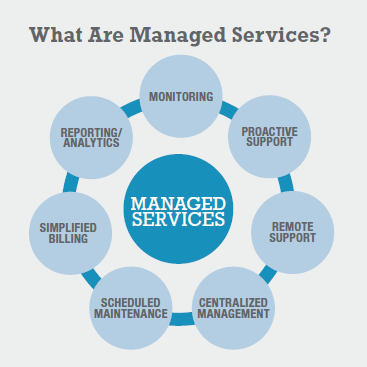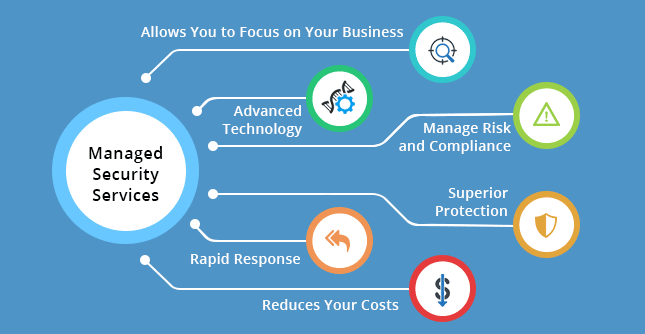
Making Sense of Tech Rules Without the Headache
In today’s fast-paced digital world, businesses rely on technology more than ever. But with great tech comes great responsibility. You’ve probably heard the word “compliance†tossed around a lot. Maybe it sounds complicated or even a little scary. But the truth is, IT compliance is simply about following the rules—rules that protect your business, your customers, and their data.
Now, if you’re a small or medium-sized business, staying on top of all these tech rules can feel overwhelming. That’s where Managed Services come in. Let’s break this down in everyday language and see how they can help you sleep better at night.
What is IT Compliance, Really?
Think of IT compliance like traffic laws for your business technology. Just like you have to drive within the speed limit and stop at red lights, your business has to follow certain rules when it comes to data and technology. These rules are usually set by governments, industry groups, or even your own customers.
Some examples of these rules include:
- Keeping customer data safe and private
- Making sure only the right people can access certain systems
- Regularly updating software and keeping things patched
- Backing up important files and having a disaster recovery plan
There are many different types of compliance, like:
- GDPR (for companies dealing with European customers)
- HIPAA (for healthcare data)
- PCI DSS (if you handle credit card payments)
Breaking these rules—even by accident—can lead to big fines, lawsuits, or loss of customer trust.
So, What Are Managed Services?

Managed Services are when you hire an IT company to handle your technology needs for you. Instead of hiring a whole team of tech experts in-house, you get access to a team that keeps your IT running smoothly and securely.
Think of it like hiring a cleaning service for your office. You don’t have to worry about the mop, the vacuum, or the schedule. The experts handle it all, and your space stays clean.
In the same way, a Managed Services Provider (MSP) handles things like:
- Monitoring your network 24/7
- Keeping your data secure
- Helping with hardware and software
- Making sure you’re meeting compliance standards
Why Should You Care About IT Compliance?
Let’s be real: You probably didn’t start your business to become an IT expert. But in today’s world, every business is a tech business in some way. Whether you run a bakery, a law office, or a real estate agency, you’re likely using emails, cloud storage, customer data, and online transactions.
If you’re not compliant:
- You could get fined
- You could lose customers’ trust
- You could suffer a data breach (which can cost thousands)
Staying compliant is like locking your front door at night—basic, smart, and essential.
How Managed Services Help with IT Compliance
Now let’s get to the heart of it—how Managed Services can take this weight off your shoulders. Here’s how they make your compliance journey easier:

1. They Know the Rules So You Don’t Have To
MSPs specialize in compliance standards. They stay up-to-date on all the changes so you don’t have to spend hours reading legal documents or figuring out tech lingo.
If there’s a new rule about how long you should keep customer data or how to encrypt emails, they’ll know and act on it.
2. They Keep Your Systems Up-To-Date
One of the easiest ways businesses fall out of compliance is by running outdated software. That’s like leaving a window open for hackers.
Your managed service provider makes sure your systems are always updated with the latest security patches, bug fixes, and upgrades—automatically.
3. They Help Control Who Gets Access
Another big part of compliance is making sure that only the right people have access to sensitive information.
MSPs can help:
- Set up secure passwords
- Add two-factor authentication
- Limit access based on job roles
So your intern doesn’t accidentally get into your financial records.
4. They Back Up Your Data
Compliance often requires that you have backups of important data. If your system crashes or gets hacked, you should be able to recover it quickly.
Managed services set up automatic, secure backups and test them regularly so you’re never caught off guard.
5. They Offer Cybersecurity Protection
Many compliance standards demand strong security measures. This includes firewalls, antivirus software, and real-time monitoring.
A good MSP will provide all of this and more, keeping an eye on your system 24/7. If something suspicious happens, they’ll respond immediately.
6. They Train Your Team
Believe it or not, one of the biggest causes of compliance issues is human error—clicking on bad links, using weak passwords, or sharing sensitive data by accident.
Managed service providers often offer employee training, helping your team understand basic cybersecurity and compliance best practices. It’s simple stuff, but it can make a huge difference.
7. They Provide Documentation and Reports
When the time comes for an audit or if something goes wrong, you need to prove you were doing things the right way.
Your MSP will provide regular reports and keep documentation of your security practices, updates, backups, and more. This helps you show regulators that you’re on top of things.
The Bottom Line
You don’t need to be an IT expert to run a business—but you do need to make sure your tech is safe, secure, and legal.
That’s why Managed Services are such a smart move. They take the guesswork out of IT compliance, protect your business, and free up your time to do what you do best.
Instead of worrying about firewalls, passwords, or audits, you’ll have peace of mind knowing someone else is watching your back—and doing it professionally.
So if you want to avoid fines, protect your data, and build trust with your customers, partnering with a managed services provider might be one of the smartest decisions you can make.
